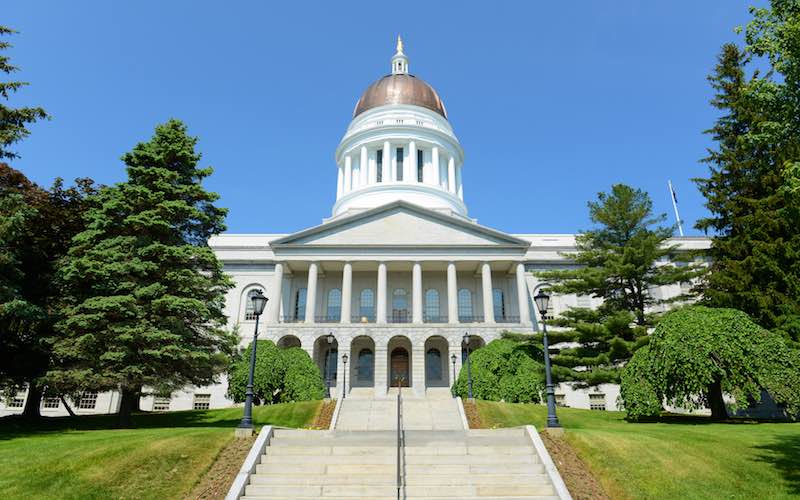
The state still needs to make the hard decisions that cut carbon pollution. Photo: Shutterstock
Maine’s Department of Environmental Protection recently released a report tracking the state’s progress in cutting carbon pollution. The report concludes that Maine remains on track to meet the state’s climate law— but that’s not the whole story. This hopeful headline conceals just how far the state still must go to protect Mainers from the devastating impacts of climate change.
Here’s how the Department is glossing over the drastic cuts to pollution Maine needs – and why our suit still stands.
Storing Carbon Away Isn’t a Guarantee – The State Is Acting Like It Is
The report measures emissions in two ways. “Gross emissions” represent the total amount of carbon pollution Maine is producing. “Net emissions” represent that number minus the carbon pollution our natural landscapes, like forests and wetlands, can store away.
Maine depends on the amount of carbon nature can store to reach its optimistic conclusion that we’re on track with the climate law. On the surface, this seems like great news. But diving deeper, this conclusion completely depends on the assumption that our forests and coastal wetlands will stay intact and healthy for years to come. We know that’s far from reality.
Climate change is threatening the stability of our precious forests and coastal wetlands right now. Wildfires are increasing in severity and frequency – just last year, Canadian wildfires spread their smoke and soot down to Maine. Temperature changes and extreme weather are making it harder for critical species to survive. Meanwhile, invasive plants and bugs are decimating our trees and other flora. We need the Department to cut climate-damaging emissions to protect our forests and wetlands, not stay complacent with the status quo.
We Have a Long Way to Go with Climate
Clearly, we have much more work to do to slow climate change and protect Maine for generations to come. This report should be a reenergizing call to action, not a victory lap. In fact, the Department itself recognizes that meeting the state’s legal obligation to cut carbon pollution will require slashing more than four and a half tons of carbon within less than six years.
How can we meet that obligation when, as of 2022, seven out of ten Maine households use petroleum for home heating – more than any other state? How can we slow climate change when partisan politics have stalled the transition to electrifying our cars and trucks, the largest contributor to climate-warming emissions? This is why CLF is suing Maine. We deserve better than complacency. We deserve leaders willing to make tough decisions that protect us, our loved ones, and our cherished way of life.



